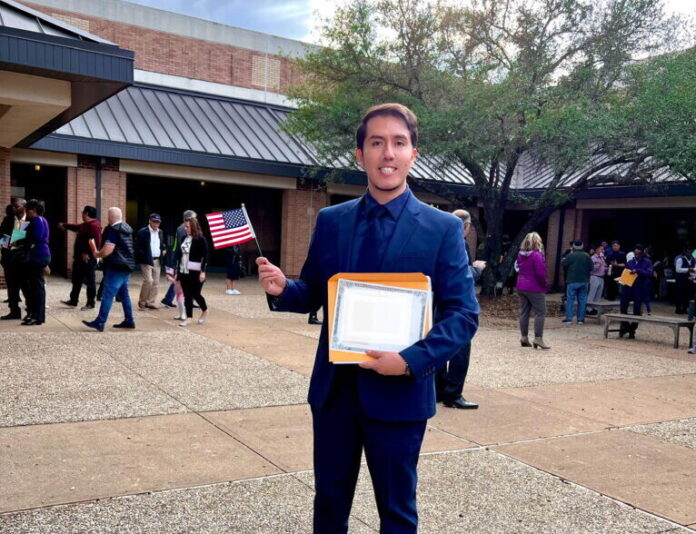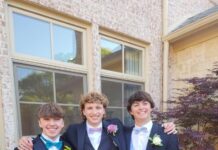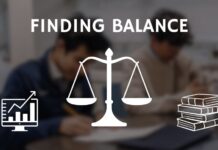In 2018, Mr. Claudio Eduardo Pinto joined the Jesuit Dallas community as a Spanish teacher. Since then, Mr. Eduardo Pinto has been an integral part of our school, whether it is through Spanish or TED-Ed. On December 13, 2022, Mr. Eduardo Pinto completed his process of becoming a US citizen. Recently, I had the opportunity to interview Mr. Eduardo Pinto about his path to citizenship.
Where did you grow up? When did you move to the United States?
I grew up in Southern Peru for the first 25 years of my life. Then, I came to the United States as a teacher assistant on a scholarship from the Institute of International Education. It was an initiative of the U.S. Department of State, Bureau of Educational and Cultural Affairs. First, I was sent to Vermont and I spent a year in the state through the EducationUSA office in Peru. Specifically, this office was part of the State Department’s EducationUSA network, focusing on careers in higher education. Afterwards, I went back to Peru for two years to continue my teaching career.
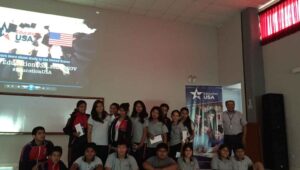
Suddenly, in 2011, I received another scholarship to the US. I attended West Virginia University (WVU) to earn my master’s degree in Teaching Foreign Languages and served as a professor at WVU. Two years later, I went to Arkansas State University to teach there. In 2018, I came to Dallas and have been teaching at Jesuit ever since. So, I went from Vermont to West Virginia to Arkansas and finally to Texas.
What factors motivated you to apply for US citizenship?
Personally, the goal for me to come to the United States was to educate myself and to have an advanced degree and experience in teaching. In order to go from one university to another, one needs to have a visa. For example, there is the H-1B visa that allows one to be a professor in different universities. To transfer between American universities, the US federal government gave me an employment visa. After I received the visa, the government tracked the ensuing sponsoring of the green card.
When I was at Arkansas State, the university offered me a sponsor of the green card. So, I felt that maybe I should consider citizenship. After informing the US Citizenship and Immigration Services (USCIS) of my interest, I was notified that the process will be long by undergoing 5 years of the green card. However, through my teaching experience at WVU and Arkansas State, I felt that I belonged to the United States more than any other country.
Can you describe the process and steps of application for citizenship?
When I came to the US for the first time, I received my first visa. This was the J1 visa, which allowed me to enter as a full-time student in Vermont and work as a professor. Afterwards, at WVU, I obtained another student visa. Then, I got the H-1B visa regarding employment as a professor, which usually lasts for 3 years. By the time I renewed my H1-B visa, the time for green card sponsorship also came. Specifically, I had to find lawyers from the university in order to apply for the green card. Then, I had to wait for 5 years to apply for citizenship. Overall, it was a very long and tedious process.
Originally, obtaining US citizenship was not my primary goal. However, as I spent time as an educator, I started to consider that I needed to stay here, which led me to citizenship.
What was preparing for the US citizenship test and interview like?
After the 5 years of the green card, I applied for citizenship by submitting numerous documents for review. These documents included past records of education, travels, interactions with the law, etc. Then, I had to study for a test to show my proficiency in English skills (listening and writing) and knowledge of American civics, law, history, geography, and other relevant subjects. Finally, after taking the test, I had to show up for an interview testing my knowledge in and outside the test. So, it was quite difficult to prepare for these final stages. However, when I completed these stages, I felt very rewarding and satisfied with my dedication and hard work.
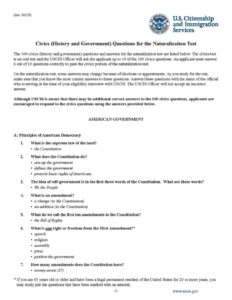
Specifically, what challenged or helped you during your application process?
I don’t think I faced any harsh challenges. Thank goodness I did not! Regarding the documents, I knew that I had to stay organized and have everything in order. Since my first day in the US to now, I have had numerous boxes of documents. So, I easily collected and sorted my information. In addition, I am very grateful to those who helped me with the process. Specifically, colleagues and professors who were also applying for citizenship advised me where to go and how to ask for help during the process.
Once you were inducted as a citizen, what was your state of mind at the time?
“In the beginning, when I first came to the United States, I had the feeling of belonging to this wonderful country.” – MR. eduardo pinto
I knew that dreams could become reality here. In my opinion, I believe that the US is the best country in providing one with the liberty of being oneself, whether it is professionally or personally. As a teacher, I had the same feeling once I officially became a US citizen.
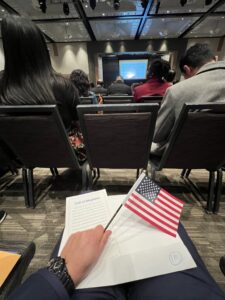
Can you share with us about your experience at the naturalization ceremony?
There was a significant number of people at the ceremony. After taking the Oath of Allegiance and receiving my certificate, I celebrated with a number of colleagues, many of whom were friends from Jesuit.
“I remembered that I was greeted with a surprise party, and it was fantastic! I felt truly happy on that momentous day!” – mr. eduardo pinto
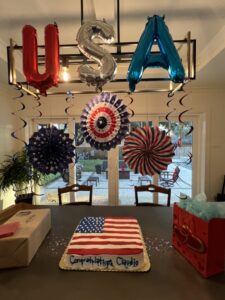
Along with Mrs. Ying Lu, Mr. Eduardo Pinto is now a US citizen! All of us at The Roundup commend their successes! Stay tuned to The Roundup for more news about the Jesuit community!


